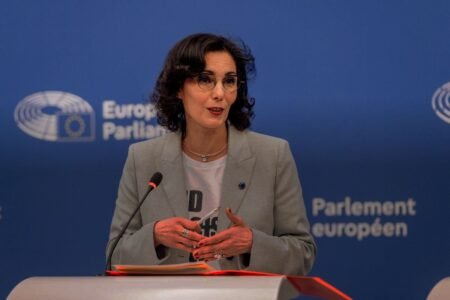This action plan establishes five priorities to be implemented in the fight against drugs: coordination at European and national levels, reduction of demand for drugs, reduction of supply of drugs, international cooperation and information on the drugs phenomenon.
Advertisement
ACT
EU Drugs Action Plan for 2009-2012 of 20 December 2008 [Official Journal C 326 of 20.12.2008].
SUMMARY
Following on from the EU drugs action plan 2005-08, the current action plan builds on the measures established to coordinate drugs policy in Member States. These two action plans implement the EU drugs strategy for 2005-12, which was adopted by the European Council in December 2004. The overall aim of these instruments is to reduce the demand for and supply of drugs, as well as the social and health damage the use of and trade in drugs causes.
Based on the existing framework, the action plan for the period 2009-12 provides for specific actions under five priority areas:
Improve coordination
In order to develop and implement drugs policy more effectively, coordination and cooperation at the European and national levels must be strengthened. The Councils Horizontal Drugs Group (HDG) should pro-actively coordinate EU drug policy. At the same time, the Council together with the Commission must ensure that the internal and external drugs policies are coherent. To move forward with specific and urgent issues, the national drugs coordinators should be convened on a regular basis.
At the national level, a balanced and integrated approach should be taken in forming drugs policy, with the civil society enabled to participate in informing thereof. The Commission should consult the Civil Society Forum on Drugs at least once a year and invite civil society (via The European Alliance on Drugs initiative) to contribute to the fight against drugs.
Reduce demand
The measures that reduce drug use and the related health and social consequences must be made more effective. In particular, the accessibility to as well as availability and quality of services that prevent, treat and reduce harm should be improved. Successful prevention programmes and interventions should be made available for a variety of target groups. Due regard should be given to the specific needs of drug users, especially in terms of age, gender, cultural background, etc. Targeted measures should also be put in place to prevent high risk behaviour of drug users.
The offer of drug treatments that consist of both psychological and pharmacological measures should be improved and new rehabilitation and re-integration programmes developed. The availability and effectiveness of demand reduction interventions should be surveyed by Member States. They should also agree on common minimum quality standards and benchmarks for these services.
Member States should make more use of sanctions other than prison to punish drug-offenders. At the same time, services for drug users in prison should be developed, with particular emphasis placed on health care as well as follow-up care upon release. Member States should also take steps to guarantee access to appropriate services to prevent the propagation of HIV/AIDS, hepatitis C and other blood-borne infectious diseases, as well as to reduce the number of deaths caused by drugs.
Reduce supply
Law enforcement cooperation at European level must be improved in order to fight drug production and trafficking effectively. To that end, multidisciplinary operations involving Europol, Eurojust, as well as police, customs and border control services should be used to a greater extent through bilateral and multilateral cooperation initiatives, namely joint investigation teams (JIT) and joint customs operations (JCO). Furthermore, judicial cooperation among Member States should be improved, especially by encouraging the full application of EU instruments for mutual recognition and assistance.
With a view to responding to emerging threats in a rapid and effective manner at the operational level, regional security platforms, such as the Maritime Analysis and Operations Centre Narcotics (MAOC-N) and the Baltic Sea Task Force (BSTF) should be set up. At the same time, manufacturing and supplying of synthetic drugs as well as the trafficking of drug precursors must be diminished. This requires enhanced border control management and international operational cooperation.
Improve international cooperation
The effectiveness of cooperation with third countries and international organisations must be improved. The EU drugs policy must be incorporated into the general development and security agenda. Alternative development projects and programmes should be supported through increased financial aid. Projects aimed at producer countries and countries along trafficking routes should be stepped up to reduce the demand for and supply of drugs. Similarly, regional and intraregional cooperation funded by Member States and EC programmes should be enhanced with third countries. Monitoring and assessment tools must also be developed to evaluate EU assistance.
The European integrated and balanced approach to the drugs problem should be promoted, in particular through the United Nations Commission on Narcotic Drugs (CND). Furthermore, EU drug-related activities should be coordinated with a wide range of international programmes.
Finally, the candidate and stabilisation and association process countries should be given technical and other assistance so that they may become familiar with the EU acquis and take the necessary actions concerning drug-related issues. Such dialogue should also be developed with the European Neighbourhood Policy countries.
Improve understanding of the drugs phenomenon
Understanding of the drugs phenomenon in the EU must be increased, not least to raise awareness among citizens, but also to expand the knowledge base for public policy. This should be achieved through the promotion of research and of exchanges of drug-related data.
It is essential that monitoring instruments, such as the five key epidemiological indicators of the European Monitoring Centre for Drugs and Drug Addiction (EMCDDA), be further developed to assess the drug situation in Europe. Member States must regularly evaluate their drug policies and amend them accordingly.
The current action plan shall be reviewed annually. In addition, the implementation of the EU drugs strategy for 2005-12 and of this action plan shall be assessed in 2012, with a view to considering any follow-up actions.





